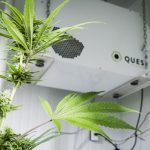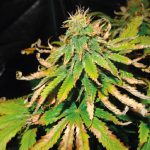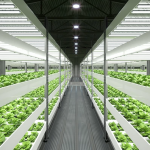When growing marijuana plants, there are high chances that you will run into a few problems in the process. However, you need to stay positive because most problems can be fixed. Being knowledgeable about cannabis plants and their needs will help to keep the plants thriving and healthy.
One of the common marijuana deficiencies that growers experience is potassium deficiency. Symptoms mainly appear when cannabis plants enter the flowering stage because of the increased demand for potassium. If you notice one or two leaves turning yellow, this should not be a cause for alarm, however, if the problem progresses, you need to act quickly to remedy the problem.
Growers need to make the correct diagnosis because the signs of potassium deficiency are similar to those of light burn and nutrient burn. Additionally, you need to understand the importance of potassium to your cannabis plants and how it helps its growth and development. This article will help you to correctly identify this problem and provide the best treatment regimens to help your cannabis plants recover.
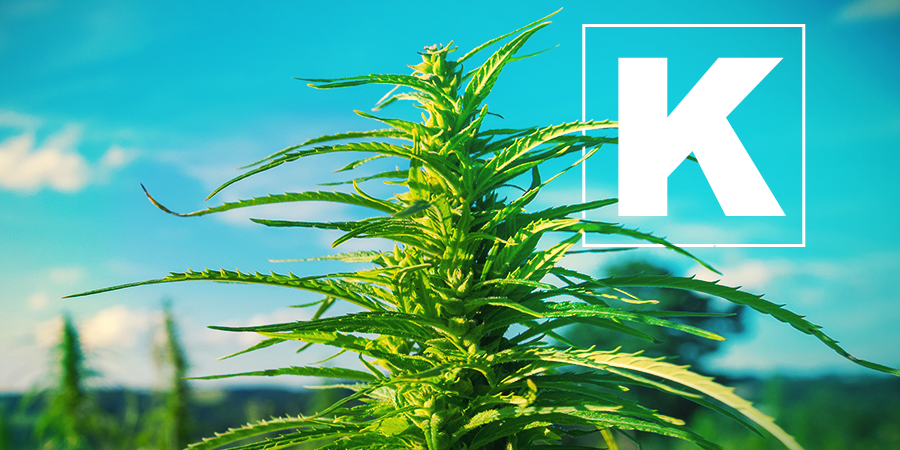
How to Identify Potassium Deficiency in Cannabis Plants
Identifying potassium deficiency right away is a challenge because it shows similar symptoms like light burn and nutrient burn. Therefore, you must first ensure that your plants are not overfeeding and the grow lights are not close to the cannabis plants. Check the leaves of the marijuana plant carefully because changes initially appear on the leaves. Some of the signs include the lead edges, margins, or tips turning yellow or rusty and tips start curling.
You can also notice brown necrotic spotting on leaves and leaves eventually become yellow, brown, or white. If the problem is not addressed, the leaves will then die and fall off. The veins of leaves usually remain green and this is a confirmation that the plants suffer from a potassium deficiency.
Observe the steps of cannabis plants. Brittle and weak stems are signs of a potassium deficiency. There will also be abnormal growth in the plants, which results to weed growing taller than normal. You may also notice longer intermodal spacing on the branches. Although plants may look taller, potassium deficiency stunts plant growth, and the leaves will grow smaller, while the buds will be less dense.
The signs of a potassium deficiency include:
- Stunted Growth
- White or Yellow spots on the leaves
- Older, bottom leaves start turning yellow from the tips inwards
- Yellowing, blackening, or browning of the leaf tips
- Leaves will curl under
- Stems become brittle and weak
- The petioles of cannabis leaves weaken and stop being erected
- The space between plant branches may increase
- Plants become more susceptible to pests and diseases
- Development rates slow down and affect the final production or yield
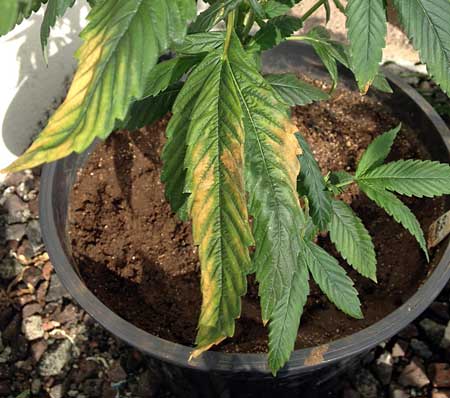
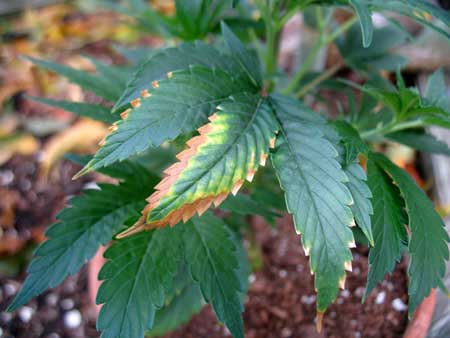
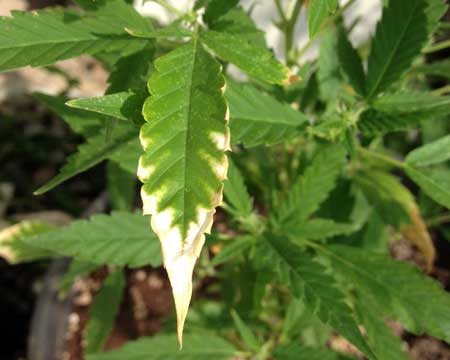
The Role of Potassium in Weed Plants
Potassium is one of the major compounds that make marijuana plants thrive, particularly during the flowering stage. Potassium aids in the movement of nutrients, carbohydrates, and water in plant tissues. It also helps in the production of starch, proteins, and adenosine triphosphate or ATP that regulates photosynthesis. Potassium is crucial for plant health and development. Potassium also improves the resistance of plants during drought or dry periods. Potassium works with phosphorus to increase the strength and resistance of plant tissues and the root system. This nutrient also protects plants from the harsh cold weather.
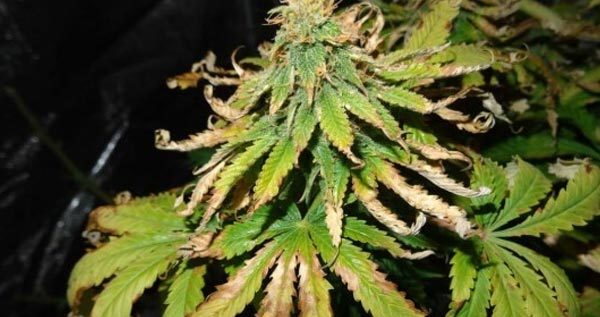
During the flowering stage, cannabis plants will require an increase in phosphorus and potassium levels. Most blooming fertilizers will increase these levels automatically and you just have to change to the flowering stage in your plants’ nutrient schedule. Potassium is crucial for the flowering stages because it aids in the production of terpene. If potassium is deficient during the flowering stage, your buds will lack smell and flavor. Potassium helps to increase the density, volume, and weight of your cannabis buds. Therefore, a deficiency in potassium can cause lots of problems like slow growth, skinny buds, and low production of buds. You are likely to face potassium deficiency issues during the flowering phase. This is why every cannabis grower should recognize and quickly fix this deficiency.
[amazon bestseller=”cannabis blooming fertilizers”]Causes of Potassium Deficiency in Cannabis Plants
The main cause of a deficiency in potassium is a lack of the nutrient in the growing medium. If you notice signs of this deficiency, it means that your plants are likely asking for more food, especially if they are in the flowering stage. However, if you have supplied enough potassium then there are other reasons why the plant is not taking up potassium. Potassium deficiency can be caused by the following;
- Excess Salts–An accumulation of salts in cannabis roots in the growing medium can also inhibit the absorption of potassium. This can be solved by flushing the root system using the cleanest water.
- Variations in PH –Deficiency can also be caused by pH variations in your substrate or irrigation water. If the substrate’s pH is outside the recommended range, the cannabis roots will not absorb potassium even if it is available in plenty of supply. In soil, the pH should be between 6.0 and 7.0 and for hydro or soil-less systems the pH should be 5.5 to 6.5.
- Stress.-Potassium deficiency can be caused by excessive heat, transplanting, or poorly done pruning. In case a deficiency is caused by stress, the plant will be back to their normal self after a few days. You should continue taking care of your plants without overdoing anything.
- Light Burn.-Light burn usually causes spots that look like those caused by potassium deficiency. This mainly affects indoor grow rooms because it is possible for the light to have excess power or is too close. There is a limit to the amount of light or heat that cannabis plants can withstand.
Read more: How To Identify And Treat Magnesium Deficiency In Weed Plants
How to Solve Potassium Deficiency In Cannabis Plants
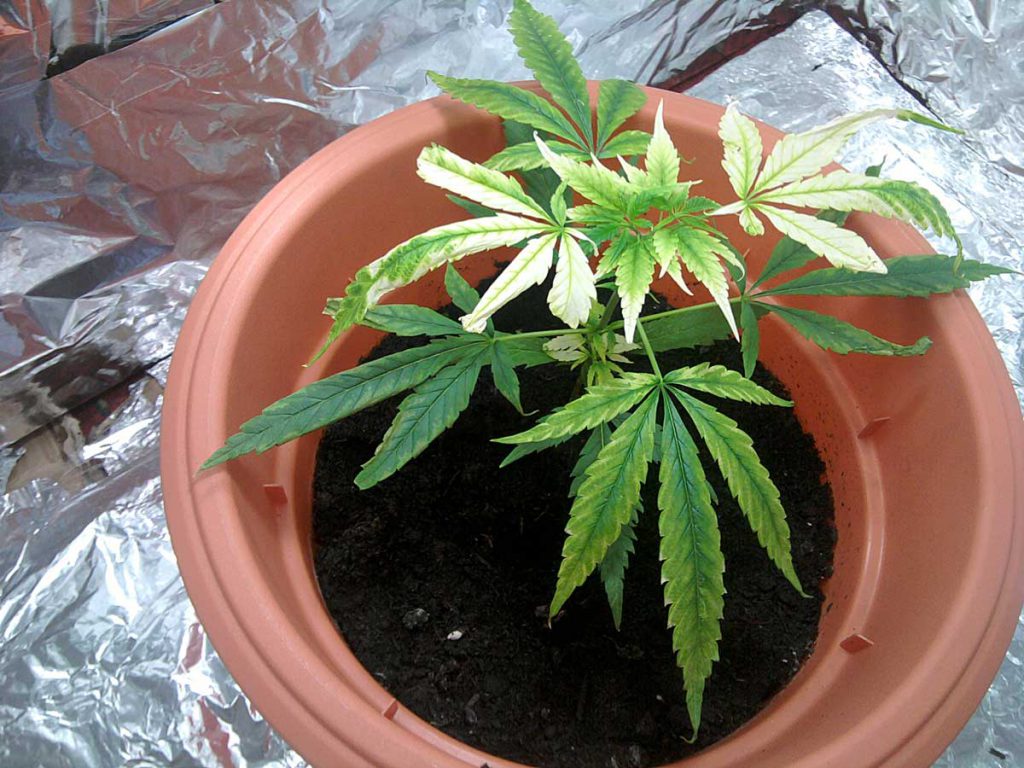
A lack of potassium can be remedied by providing marijuana booster for your weed plants. This will provide your plants with the feeding schedule and fertilization to ensure your plants get proper nutrients based on their growth stage. A bloom fertilizer can also be used to solve potassium deficiency in cannabis plants. This water-soluble fertilizer has lots of potassium and will provide your plants with what they are lacking.
Cannabis growers can also use potassium sulfate, liquefied kelp, potassium silicate, potassium dihydrogen phosphate, or potassium bicarbonateor. For growers who prefer slow-release potassium source, a greensand and granite dust works best. Other substances that are packed with potassium include wood ash and bone meal.
Sometimes, cannabis plants may not absorb potassium because of excess nitrogen or calcium. You can check the pH of your water and then flush out the system and use water that has half does of nutrients.
[amazon bestseller=”cannabis nutrient”]Final Thoughts
Potassium is a key nutrient necessary for the growth and development of marijuana plants. Therefore, potassium deficiency is quite a common experience for both novice and veteran growers. Fortunately, recovering from a potassium deficiency is quite easy for cannabis plants. You will notice signs of recovery in a week or so after supplementing with organic fertilizer or PK booster.
If your plant does not recover, you can check out the other causes mentioned above and investigate the growing medium, routines, and levels to help you make a correct diagnosis. Sometimes, potassium deficiency can be solved by flushing the growing medium and plant roots to help you start afresh. This will help you create the right level of nutrients and pH balance that will guarantee healthy growth of your marijuana plants.


